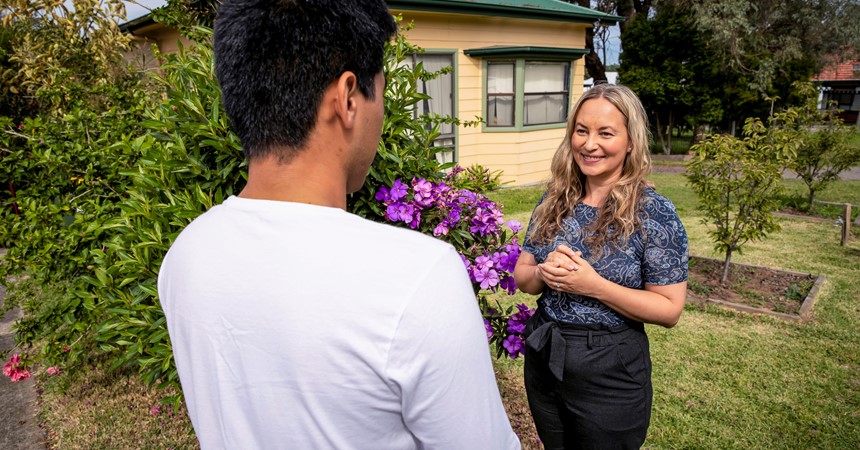The policy announcement fulfils Prime Minister Anthony Albanese’s election commitment, but more than that, it will significantly enrich the lives of 19,000 people currently living in Australia.
Mirja Colding-Moran is a registered migration agent at CatholicCare Social Service’s Refugee Hub. Part of her role is to provide professional advice and assistance on immigration matters to refugees and asylum seekers.
Following the policy announcement, Mrs Colding-Moran reported a spike in enquiries from temporary and safe haven visa holders living in the Hunter eager to apply for a permanent Resolution of Status (RoS) visa. The new visa option will provide temporary residents with the stability and security they have been lacking.
“Obtaining a RoS visa can be life-changing. It enables refugees to gain access to social security payments, mortgages, business loans and other benefits, but most importantly, the ability to reunite with family,” Mrs Colding-Moran said.
“Many refugees arrive in Australia without any family, so this announcement gives them hope for reunification.”
The Albanese government expects the process of converting temporary protection visas to permanent ones to take about 12 months.
Mrs Colding-Moran said the significant change in immigration policy would enable people who had already been contributing to Australian society, to receive the same opportunities and benefits as other citizens. However, she does acknowledge not everyone will be happy about the policy change.
“Unfortunately, the sad reality is that many Australians falsely believe asylum seekers are illegal arrivals who do not deserve to be rewarded for ‘jumping the queue’,” she said.
“I implore everyone who has this view to delve beyond the rhetoric in mainstream media which feeds this sensationalist narrative.”
Australia is a signatory to the 1951 Refugee Convention, the main international treaty concerning refugee protection.
“As a signatory, Australia is bound by international obligations relating to the treatment and protection of asylum seekers. It is important to understand that under international law it is not illegal to seek asylum. It is a human right,” Mrs Colding-Moran said.
“Asylum seekers have endured horrific experiences and come to Australia in desperation and fear of persecution. They are not `boat people’, they are people like you and me, who deserve to feel safe, secure and supported.”
“For years this declaration was ignored and asylum seekers on TPVs and SHEVs were unable to feel safe and secure as they continued to be subject to restrictions on basic human rights.
“On top of this, the prolonged uncertainty of their visa status only exacerbated the already significant trauma they experienced fleeing their homeland.”
Mrs Colding-Moran said while the announcement was a step in the right direction, there was still more work to be done.
“There are many people who are on other visas, such as bridging visas, who unfortunately remain in limbo without any Government support,” she said.
“Following the announcement, we had many people come to the Refugee Hub who were in this predicament. Understandably, they were heartbroken to have it confirmed that their status remains unchanged.”
Yet she remains hopeful.
“The recent announcement shows that if we band together, there is hope we can make a difference in the lives of some of the most vulnerable in our community who just want to make Australia their permanent home and contribute to our way of life.”
If you or someone you know require migration advice or assistance, and wish to make an appointment for an initial consultation, please email migration@catholiccare.org.au
Follow mnnews.today on Facebook.























































































